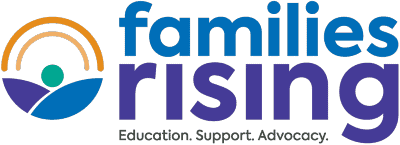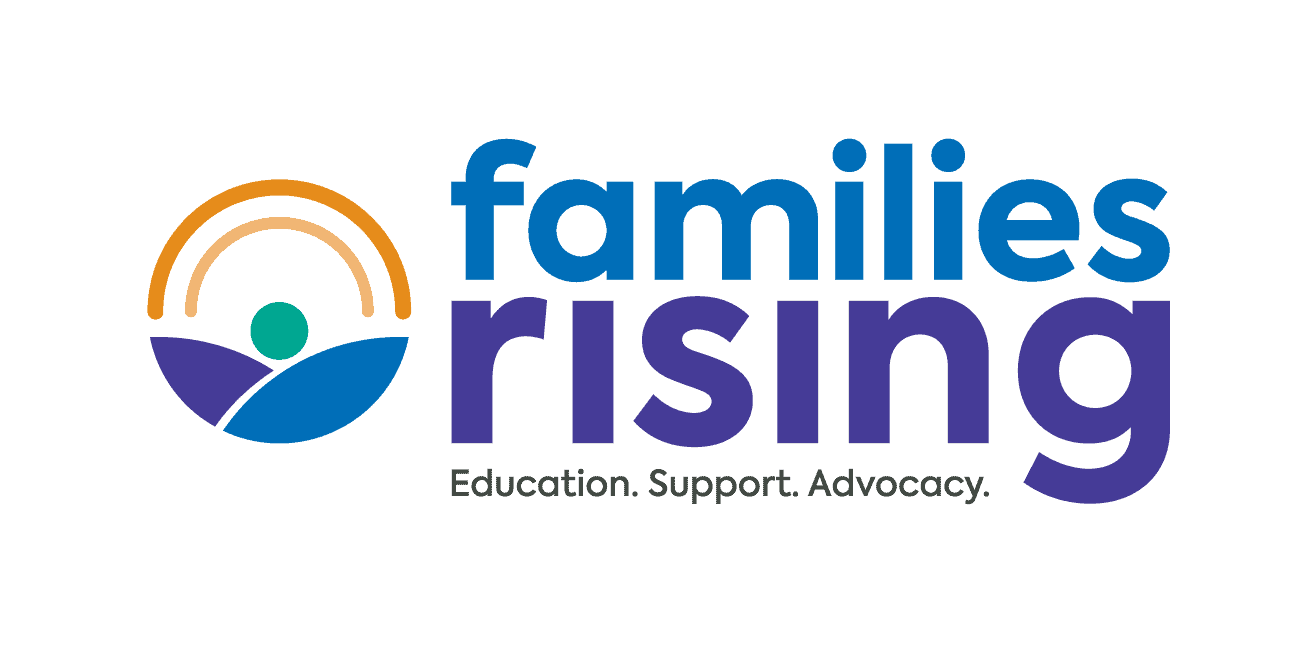Do you want to create or enhance an adoptive parent support group? Do you think training of your leaders or members will improve your ability to accomplish your goals? If so, Families Rising is here to help.
Families Rising is pleased to be able to offer training and technical assistance to parent group leaders to help them create and enhance the support they provide to adoptive, foster, and kinship care parents.
The first group of topics below is designed to address your group’s functioning. The second series of trainings are sessions we can provide to your parent group members.
Some training may be available at no or low cost through Families Rising’s Community Champions Network. In other cases, your parent group may need to pay travel costs or other expenses. Contact Barb Clark at barbclark@nacac.org or 651-644-3036 x13 to request training or learn more.
Families Rising’s annual conference also has a series of workshops designed for parent group leaders.
Available Group Development Assistance
Starting a Group
- Program Development — Just starting out or starting over? Help with your program development may save you costly mistakes and give you the direction you’re looking for.
- Board Development — The how-tos of building a strong, effective board. This training will target areas of need as related to board composition and how to identify and recruit potential board members.
- Obtaining 501(c)(3) Status — All the nuts and bolts of what needs to be done to obtain not-for-profit status.
- Leadership Training — Instruction will focus on the leader’s role in pulling groups together, maintaining groups, developing group activities, defining a group’s focus, periodically revitalizing existing groups, and maximizing the value of parent-based organizations.
- Funding — Identify and access funding opportunities that fit your group. Also, learn the components of writing a successful grant proposal and how to identify good funding sources.
- Publicity — How to get the word out about your group to your community. There are many ways to obtain valuable publicity for little or no money.
- Organization Policies & Positions — Whether your group is new or has a history, this interactive assistance can be extremely helpful in assessing and/or implementing new policies or taking positions on the many aspects of the adoption experience.
Revitalizing Your Group
- Board and Staff Burnout — Is your board or staff suffering burnout? Could your group be operating in a mode that worked previously, but doesn’t seem to be effective now? An experienced “outside” eye can be useful to help see what is and what is not working for your group, or you personally.
- New Leader Identification and Support — What are leadership characteristics? Their style may be different, but equally good for the group. How to recognize and support potential leaders and assist in the transition of your group through a change in leadership.
- Program and Policy Adjustment — Have things changed since your group’s inception? Legislation, children’s ages and life stages, and societal changes all impact the thrust of your group. Interact with Families Rising for help in revamping your group.
Enhancing Your Group
- Building Coalitions — Learn how to implement a parent-based statewide adoption advocacy organization that provides continuity to individual groups and is focused on system change.
- Developing & Maintaining Web Sites — Get the answers to how and where to start. Is a professional webmaster needed? How do you maintain and update the site?
- Developing & Staffing Warm Lines — Learn how to set it up, what choices are available, and what and whom you need to staff it.
- Establishing Respite Care — A few models will be shared, and assistance will be given, looking at the specific needs and supports of your community.
- Developing Youth Speak Out Teams — Young adopted adults are the best advocates for system reform, advocacy, and recruitment. Learn how to start and maintain a local team.
Available Workshops for Parent Groups
The workshops listed below can typically be offered in 90-minute, 2-hour, or even full-day sessions. Please contact us to discuss your needs and scheduling preferences.
- Adoption Issues — Learn the basic issues inherent in the adoption experience that affect all parts of the triad and how to identify them.
- Advocacy Instruction — Discover how to effectively make changes for your child in the system and how to band together to make system changes for all children.
- Birth Family Relationships — Whether the relationships are a result of open placements or search and reunion, it is important to look at the special interaction and connections that exist. Learn what expectations are reasonable and what boundaries need to be in place.
- Buddy Programs — Learn how to establish a mentoring/support program that reaches out to your prospective and/or newly adoptive parents.
- Challenging Behaviors — Many children in adoptive and foster families come to us with challenging behaviors. Parents and caregivers need to have the knowledge, skills, and understanding of where these behaviors come from, and how to deal with them. This is one of the most common topics in support groups. Join us as we discuss and explore ideas and strategies to share with parents and caregivers in your groups.
- Disabilities and Challenges Common in Adoption and Foster Care — Parenting supports and resources are available on any and all special needs. This offering is a prime example of one that can be tailor-made for your group, whether your concerns are abuse, attachment, FASD, how trauma affects development, or any number of other issues.
- Fetal Alcohol Spectrum Disorders — Experts estimate that the significant majority of children in care were prenatally exposed to alcohol. As a result, foster and adoptive families are likely parenting a child with a fetal alcohol spectrum disorder (FASD). FASD translates to a brain injury and it is crucial that caregivers understand FASD, how the behaviors are related to the brain injury, and strategies to better support their children.
- How Abuse and Neglect Affect a Child’s Development — Most of our children come to us as victims of abuse and neglect. This workshop will look at normal development and the effects of abuse and neglect on development. We will then look at strategies to help children, at each developmental stage, by going back and looking at the normal developmental tasks.
- Kin Relationships — Many aspects of kinship care are unique and loaded with emotional difficulties as well as physical demands. We will look at where and how boundaries can be put in place to enhance all the relationships involved, as well as what supports and assistance are available for the caretakers.
- Leadership Training for Support Group Leaders — This workshop will focus on the leader’s role in groups, facilitation styles, and maintaining groups.
- Moving from Foster Care to Adoption — This workshop will address the advantages and disadvantages of foster parent adoption so that care givers can accurately assess the appropriateness of this transition for their family. As well as helping both the parents and children understand the increased level of commitment and expectations inherent in adoption.
- Post-Adoption Models — Families Rising can facilitate the development of post-adoption services and identify government and foundation funding sources.
- Preventing and Surviving Allegations — This workshop will discuss why allegations of abuse happen to adoptive, foster, and kinship parents, how caregivers can help themselves through an allegation, and ways to be proactive in parenting so that there are as many safeguards as possible in your home to avoid allegations. This workshop will discuss the legal ramifications and give insight to parents about their rights. Parent support groups’ strategies for support and education will also be addressed.
- Recruitment — This workshop will feature model programs along with tips for effective outreach and retention.
- School Issues — Adoption experiences can complicate many school assignments. Optional assignments will be explored as well as helpful ways to approach your school’s staff. Assistance can also be presented for families whose children require IEPs.
- Search & Reunion — This workshop will provide assistance for doing a search as well as assessing what needs and expectations are present. Support and understanding are necessary for all the triad at this time, and we are happy to provide it. Facilitation with the reunion event is also available.
- Subsidized Adoptions: What Parents and Workers Should Know — Adoption subsidies are often the only means families have to provide needed services for their children. How can adoption workers protect the adoptive families and provide a minimum of post-adoption services for the families? How can families negotiate in their adopted child’s best interest?
- Techniques for Working with Challenging Kids: Ways to Help Parents De-escalate and Live more Sanely — This workshop will look at characteristics of angry/aggressive children. It will also address how we increase their aggression and give “hands-on” tips for de-escalating and working positively with our kids.
- Transracial Parenting — Families Rising will present to current or prospective adoptive parents about key issues in transracial parenting, including developing community connections, becoming a family of color, addressing racism, and supporting your child’s identity.
- Understanding Attachment and Ways to Work with Attachment — We can work with attachment! This workshop will look at patterns of attachment and address ways to encourage children attach at each developmental stage. We will also talk about taking care of the caregiver when helping children attach.


